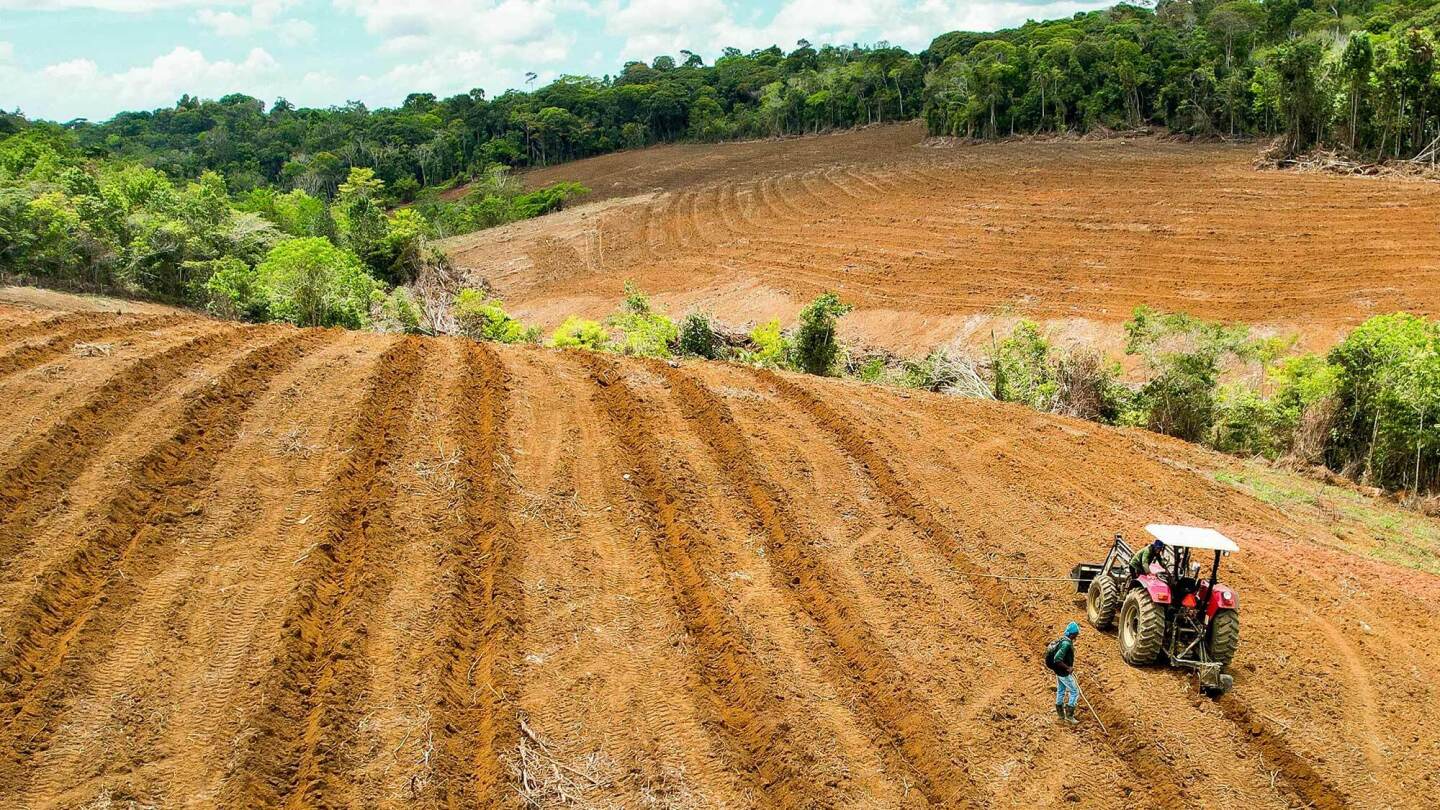November 29, 2023 3:45 AM
With new projects in the Amazon rainforest, Amazon is raising the bar for carbon credit quality
Amazon is expanding its investments in nature-based solutions that fight climate change with two new agroforestry projects in the Amazon Rainforest. These projects will improve livelihoods for local farming communities while removing and storing carbon from the atmosphere and demonstrating an innovative new quality standard for measuring and verifying carbon dioxide removal in agroforestry and restoration projects. These new investments are part of Amazon’s Climate Pledge commitment to reach net-zero carbon emissions by 2040.
Restoring nature to fight climate change
The world lost 4.1 million hectares of tropical forest in 2022, emitting 2.7 billion metric tons of carbon dioxide into the atmosphere—as much as India’s annual fossil fuel emissions. Globally, deforestation and other land use change account for as much as one-fifth of the world’s annual carbon emissions.
At Amazon, we’re focused on reversing this harmful trend by protecting tropical forests and restoring degraded lands. Scientists estimate that scaling these types of interventions globally could account for more than one-third of the carbon removal necessary to keep the planet in line with the goals of the Paris Agreement.
Amazon has already made ambitious commitments to conserve and restore nature through the LEAF Coalition—a public-private initiative that has mobilized more than $1 billion to protect the world’s tropical forests—and the Agroforestry and Restoration Accelerator, where we are experimenting with business models, landholder engagement strategies, and measurement techniques to support agroforestry and native restoration on small-scale farms.
Now, Amazon is building on these commitments with new investments to restore degraded land in the Amazon Rainforest basin, one of the most biodiverse regions on Earth. In the Ucayali and Loreto regions of Peru, Amazon is partnering with Viridis Terra to establish biodiverse forests and agroforestry systems that include native trees like cocoa and citrus, designed according to sustainable farm management plans. In the Brazilian state of Pará, Amazon is partnering with agroforestry start-up Belterra to offer new ways for family farmers to finance agroforestry systems and help them access new markets for regenerative crops. In both projects, Amazon is helping small-scale farmers store more carbon on their land while developing new sources of income that can support their families for decades to come.
01 / 03
''We are very excited to have Amazon as a partner in scaling up our large-scale integrated forest landscape restoration activities on degraded land and transforming together the nature-based carbon removal sector into lasting and durable positive impacts on climate, nature, and people,“ said Martin Beaudoin Nadeau, founder and CEO of Viridis Terra.
“Belterra welcomes the opportunity to work with Amazon to truly foster the implementation of biodiverse, productive agroforestry systems with small landowners. We value the partnership with Amazon that has great potential to be scalable and impact thousands of farmers in Pará, while also generating high integrity carbon credits," said Valmir Ortega, founder and CEO of Belterra.
Raising the bar on carbon credits
The way we design nature-based projects and measure, verify, and monitor carbon removals should be based on the best available science, so that we can have confidence in the climate impact of our investments. Over the last few years, Amazon has focused on developing and improving new methods to ensure high-quality impact evaluation in forest restoration projects. As part of an independent working group made up of leading carbon market experts, scientists, and conservation professionals, we have helped develop the ABACUS—a rigorous set of principles and requirements for quantifying the climate impact of restoration projects. ABACUS was recently released for public consultation by Verra, the world’s largest independent carbon credit standard body. Amazon now plans to certify all carbon credits generated through its investments with Viridis Terra and Belterra, as well as through the Agroforestry and Restoration Accelerator, under ABACUS.
What’s next?
Amazon continues to build new partnerships with companies that restore degraded lands to benefit local communities and the climate. In doing so, we aim to increase the supply of carbon credits that meet the ABACUS requirements for high-quality carbon crediting. Project developers and investors who are interested in working with Amazon are encouraged to respond to Amazon’s Request for Information.






